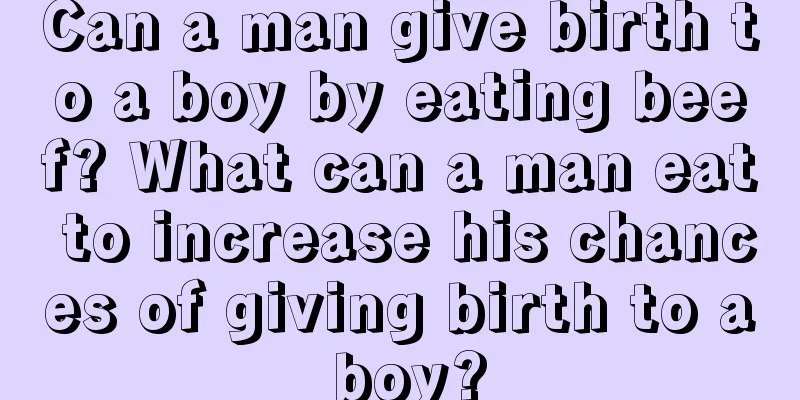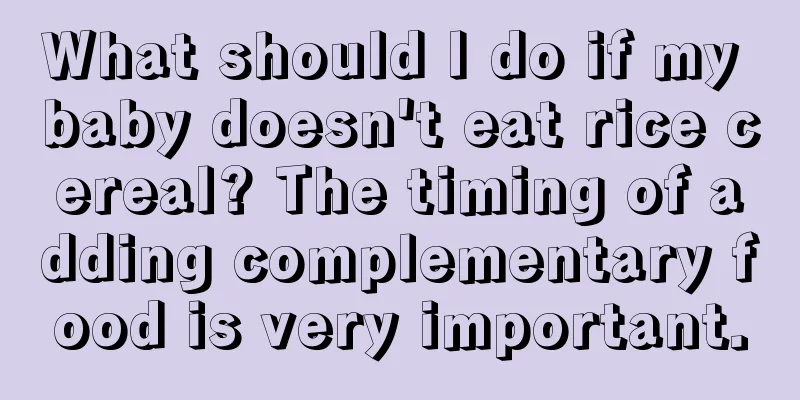Why do we lose our memories before the age of three? What erases our memories from infancy?

|
For each of us, the memory of infancy is like a fog in our mind. Why do we have no memory before the age of three? What erased the memory of infancy? Let's uncover the secret together~ Were you once a running, crying little kid? I know, this is hard to believe, right? Because you probably have forgotten everything about your childhood. You probably had no memories of your infancy, and your brain was empty. The only things you had in your mind were very vague, and people call this childhood amnesia, which is a necessary part of growing up. Some people are better at remembering things, but in general, we are not that good at remembering things. But why is it so difficult to retain memories from infancy? Why are memories before the age of three erased?What happened at the age of three or four, which is the turning point of "remembering things"? There is a theory of "immature brain" in the scientific community, and there is also a term "baby amnesia". Although the cerebral cortex and hippocampus are basically formed at 6 or 7 months of pregnancy, they will continue to develop a lot after birth. The cortex will form many more synapses and myelin sheaths, and the hippocampus will add countless new neurons. As you can imagine, if the hardware does not keep up, the storage capacity will naturally be insufficient. Some scientists also think that software is important. The older the child is, the better their ability to understand and the better they can understand the situation. Understanding helps memory. For example, in the fire alarm experiment, four-and-a-half-year-old children have richer "social experience". They know what firefighters do and may listen to the teacher's explanation more carefully after returning to the classroom. Stronger expressive ability also helps memory. European and American parents prefer to ask their children questions after they go home and ask them to tell what happened during the day. The educational philosophy of these countries believes that retelling their daily experiences with their parents can exercise their language expression ability. A four-and-a-half-year-old child must have better expressive ability than a three-and-a-half-year-old. Once they go home, they will remember it more firmly. A three-and-a-half-year-old child may not be able to explain the incident clearly when he goes home, or may not even tell it at all. Researchers also speculate that because Asian parents do not have the tradition of telling their kindergarten experiences at home, if the same experiment is done in China, the number of children who can recall the incident will definitely be relatively small. In fact, Europeans and Americans' earliest childhood memories are indeed about half a year earlier than those of Chinese people. Characteristics of baby's memory before 3 years oldAlthough most of us cannot recall things before the age of 3, these memories stored in our minds will not be wasted and will become active as long as there is a suitable scene. The main characteristics of baby memories before the age of 3 are as follows: Image memory The memory before the age of 3 is more focused on image memory, which remembers the appearance of things and does not have a certain understanding ability. For example, at only two months old, they can already recognize the bottle, and will open their mouths as soon as it approaches, and sometimes even smack their lips. In the memory of young children, they often rely on image memory, especially visual imagery. Motor Memory It means that the baby remembers his own movements or actions. For example, when he throws a duck into the water while taking a bath, the splashing water makes him feel very interesting, so he remembers this interesting thing. When the same scene appears again, he will repeat this action. Emotional memory Emotional memory is also common. For example, babies can especially remember things or scenes that make them feel scared or sad. Mechanical memory When babies are young, their comprehension ability is relatively poor. They often don’t quite understand what they are memorizing, but they can recite it happily. For example, when learning nursery rhymes or telling stories, they may have a lot of them, but they don’t know what they mean. Remember quickly, forget quickly Although babies under 3 years old have memory, the memory retention period is generally short. When the baby sees something they have seen before, babies under one year old can basically remember what happened a few days ago, while two-year-old babies can recognize what happened a few weeks ago, and three-year-old babies can recognize what happened a few months ago. Why we don't remember things before the age of three1. The first theory is that the brain is not fully developed during infancy. Two parts of the brain that are essential for forming new memories, the hippocampus and the medial temporal lobe of the brain, are fully formed by the first year of life. However, another part of the brain, called the prefrontal cortex, is not fully formed until the early twenties. The prefrontal cortex is believed to be responsible for generating episodic memories, which are memories of real events that consolidate what happened, where it happened, and approximately when it happened, which is an ability that the brain can only master later. Before this, the brain can only remember those abilities that we have learned and some superficial things, such as objects and faces. In infancy, we cannot give these things emotions, so these things cannot be transformed into real events, so these things are difficult to recall. 2. There is another theory that can explain this phenomenon. Babies do not have the ability to speak, and we do not have language either. This is very important. Without language, we cannot use words to refer to memories. For example, think back to the day you moved into your new house. You will probably remember the different aspects of that day, such as the house had six windows and a blue door, and you came to your new home in a red car. If you put a baby in the same situation, it will not be able to describe the event in words. This is because babies do not know what windows and doors are, let alone how to describe these things. 3. Just like a computer hard drive, the brain has limited storage space, and the space left for brain cells is also limited, so the brain's ability to store new memories is limited. This means that after new brain cells are produced, if there is no space left, the old memories must be overwritten. Therefore, if new brain cells appear and there are no extra spaces, the brain will screen out useless and forgotten memories and delete them to make room for new memories. "Then we are born with countless brain cells, and they cannot be regenerated", this is just a rumor. Studies have shown that brain cells and neurons continue to grow in the brain until we die. Although the growth rate of brain cells slows down with age, why do infants' brains delete memories more often than adults? There are two reasons for this: First, the brain is growing at an incredible rate during childhood. We learn and grow faster than ever before, which requires more space in the brain for new memories and learned skills. Second, the brain classifies most memories from infancy as "unimportant." Because to put it bluntly, you don't need to remember the time you crawled around the garden and tried every possible way to pick tulips. So, the memories formed in infancy are the first to be discarded after new memories and new skills emerge during growth. In short, we don’t remember things from our infancy because our brains have emptied the “recycle bin” because there are too many things in the “hard drive”. |
<<: How about the Meco Blue Fatty milk powder? Dedicated to maintaining the baby's immune system
>>: What to do if you have breast milk diarrhea? Prevention of breast milk diarrhea
Recommend
The eldest daughter is jealous of the second child's younger brother being favored. How to appease the eldest child by having a second child?
With the opening of the second-child policy, many...
What are the causes of infertility? Finding the cause is the key
What is the reason for infertility tests not to r...
Can Colgate toothpaste whiten teeth? Is Colgate toothpaste good for teeth?
It is said that toothpaste should be used in rota...
What medicine should I take for low progesterone? Is it useful to take progesterone capsules for low progesterone?
Low progesterone can easily lead to female infert...
What to eat to promote baby's brain development
Parents all hope to have a healthy and smart baby...
The difference between blue and green Ariel laundry beads. How many Ariel laundry beads should be put in at a time?
Ariel's laundry detergent beads come in sever...
How to increase nutrition for children who are too thin? What can children who are too thin eat to gain weight?
Usually most children are thin, because many chil...
What is the success rate of artificial insemination? Are children born from artificial insemination healthy?
With the development of medical technology, the e...
Nice and non-tacky girl names Nice and non-tacky girl names
A person's name is very important and will ac...
Can laundry detergent wash down jackets? Can laundry detergent wash wool sweaters?
Laundry detergent has now become the choice of mo...
What will happen if you don't sit well during the confinement period? There are several symptoms
The most common symptom of not taking good care o...
What are the typical symptoms of gastritis in children? How to treat gastritis in children?
Gastritis is a common disease among children nowa...
Can you still drink moldy tea? How to deal with moldy tea?
If you find that the tea leaves stored at home ar...
What should I do if I have difficulty defecating after a cesarean section? How can I defecate quickly after a cesarean section?
Postpartum constipation is a common problem for m...
How to deal with baby's earwax that becomes hard lumps? Here are 3 ways to deal with it
It is easy for earwax to grow in the ears, which ...









